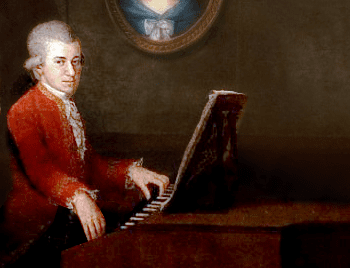Whenever one considers natural and/or moral disasters, one can easily come away overwhelmed and despondent. What moves us to action to aid those who suffer in the wake? Hope certainly has something to do with moving beyond the threat of paralysis or inactivity in many if not all situations. Public opinion across the world will continue to weigh in on whether President Trump should have ordered the destruction of the airfield in Syria that reportedly housed the planes used in the chemical weapon attacks that devastated civilians. Still, what is your opinion on why people don’t give up hope in the face of various regional and global tragedies?
Karl Barth witnessed numerous crisis in his day, including two world wars. In the midst of wrestling with the moral darkness, Barth never lost hope. In addition to his seemingly unwavering faith in the good news of Jesus Christ, Barth appeared to have found great comfort in Mozart’s music, even as he wrote voluminously on the great cosmic spiritual battle. Barth notes in Church Dogmatics, volume III/3 that Mozart was born a year after the great Lisbon earthquake of 1755. This earthquake led to the great modern theodicy project that attempted to explain why evil exists. Mozart did not appear to get wrapped up in the debate over whether this is the best of all possible worlds. Rather, for Barth, Mozart composed the best of all possible music the modern world has known. What was it about Mozart that may have given Barth comfort in the midst of the crisis of his day? The following quotation may provide a clue. For Barth, Mozart
knew something about creation in its total goodness… he heard the harmony of creation to which the shadow also belongs but in which the shadow is not darkness, deficiency is not defeat, sadness cannot become despair, trouble cannot degenerate into tragedy and infinite melancholy is not ultimately forced to claim undisputed sway. Thus the cheerfulness in this harmony is not without its limits. But the light shines all the more brightly because it breaks forth from the shadow. The sweetness is also bitter and cannot therefore cloy.[1]
One does not find here an attempt to rationalize evil’s appearance, or to deny its existence. But one does not find here hopelessness, or a sense that evil wins out in the end either.
This weekend, Mozart’s Requiem will be performed in Portland, Oregon. Unfinished at the time of his death, the Requiem is still a colossal achievement. The requiem he created was commissioned by a royal official who purportedly wanted to pass himself off as the composer of the work dedicated to his wife. What a deeply saddening note that one of the world’s most famous musicians would end his life in such anonymity, even buried in an unmarked, mass grave. Even so, Mozart’s music towers above the anonymity and provides solace to countless people even today who face deep sorrow head on without losing hope.
Barth found Mozart’s music to be a secular parable of God’s kingdom.[2] For him, Mozart’s music reflects how God’s light penetrates the darkness. Jesus as God’s Word whose passion we remember during this season of Lent is the one through whom we hear God’s yes to the creation in the face of evil. There is no attempt to rationalize the evil Jesus confronts in his unjust death, but he does consume it through dying and rising again from the grave. Jesus’ victory over humanity’s inhumanity toward one another in countless ways makes it possible not to give in to the darkness. For Barth, Mozart’s music is a fitting tribute to this cosmic spiritual battle, whereby we may arise from the ashes and fight for good another day.
_____________________
[1]Karl Barth, Church Dogmatics, vol. III/3, The Doctrine of Creation, ed. G. W. Bromiley and T. F. Torrance (Edinburgh: T. & T. Clark, 1960), page 298.
[2]Karl Barth, “Mozart’s Freedom,” in Wolfgang Amadeus Mozart, with a foreword by John Updike, and a new foreword by Paul Louis Metzger (Eugene, OR: Wipf & Stock Publishers, 2005), pages 56-57.













